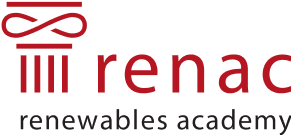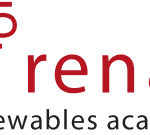This website uses cookies so that we can provide you with the best user experience possible. Cookie information is stored in your browser and performs functions such as recognising you when you return to our website and helping our team to understand which sections of the website you find most interesting and useful.
Customer-specific programmes
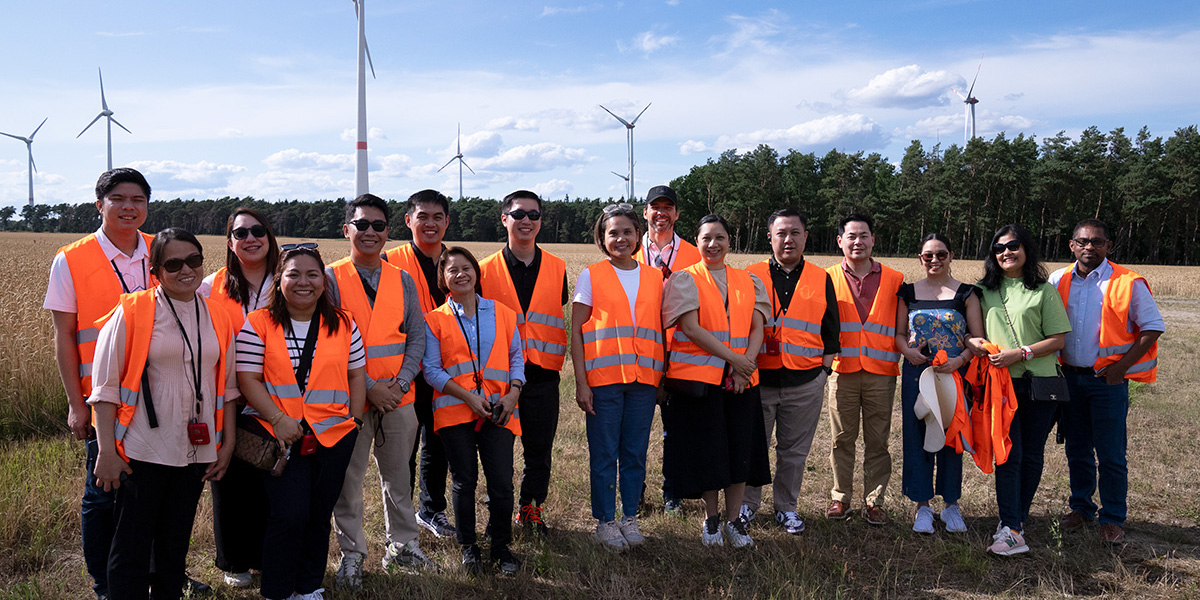
Job requirements in the green energy markets are complex and manifold. To ensure a company or organisation success, employees need extensive skills and up-to-date know-how.
RENAC customer-specific programmes offer the best way to meet participants’ training objectives:
- Analysis of participants’ capacity needs
- Selection of training contents and methods according to prior knowledge and needs
- The most suitable trainers
- Development of comprehensive materials with the highest quality standards
- Implementation of the training
Additionally, the training can be adjusted in duration and depth, organised for groups of various sizes and adapted to cover various technologies. Clients can determine when and where the training takes places.
Filter and search
Type
Name
Duration
Study time
Info
- biofuels, biogas, combined heat and power (CHP) plants, introduction, solid biomass, sustainability aspects
Content:
- Introduction to biogas, biomass and biofuel technologies
- Sustainability aspects
- Available technologies and their applications
- Project development and implementation
- Key success factors
- Required legal frameworks and support mechanisms
- Economic and financing aspects
- Case study exercises
- Excursion to outstanding bioenergy projects
Learning objectives:
After the seminar participants will be able to:
- Assess and classify bioenergy resources and technologies
- Evaluate the costs and benefits of bioenergy projects
- Explain the relevant steps for an efficient project management
- Discuss legal frameworks and support mechanisms
Target group:
- Project developers or engineers who want to expand their field of activities
- Employees of public authorities, ministries and governmental and non governmental organisations
- Farmers interested in Bioenergy
- frequency range, introduction, quality of energy supply, security of energy supply, structure of electric grids, voltage stability
hours
Content:
• Structure of electricity grids
• Secure operation of electricity grids
• Case study
Learning objectives:
After completing this online course, participants will be able to:
- Share a common and solid basic understanding of electricity and electricity grids.
Target group:
This training suits those who:
- Need to know how a power grid is structured and operated in general
- Want to get an overview on technical aspects and functions of power grids
- Develop RE projects, RE support mechanisms or finance RE projects with grid connection
This training is also recommended for non-engineers
- electric energy, electric power, electricity fundamentals, introduction
hours
Content:
• Electrical basics
• Electric energy and electric power
Learning objectives:
After completing this online course, participants will be able to:
- Describe the basic technological terms and principles governing the operation of electrical power systems
- Give reasons for keeping grid frequency stable
- Explain why power systems are typically built as three-phase AC systems
- Distinguish between electric energy and electric power
Target group:
This training suits those who:
- Are interested in fundamentals of electric power
- Want to refresh their technical knowledge on electricity before continuing with other courses.
This training is also recommended for non-engineers.
- energy supply and demand, physical basics, RE resources, units and conversions
hours
Content:
- Development of energy demand
- Physical basics
- Units and conversions
Learning objectives:
After completing these participants will be able to:
- Describe the global situation of energy supply and demand
- Differentiate forms of energy as well as energy and power
- Name fundamental parameters, units and conversion factors related to energy topics
Target group:
This training suits those who:
- Are interested in energy topics in general
- Want to refresh their knowledge before studying renewable energy or energy efficiency courses
- Recommended for non-engineers
- barriers, benefits, definition, drivers, economics, financing energy efficiency, introduction, standards and norms
hours
Content:
• Setting the scene – energy efficiency and the global experience
• Definitions, standards and technical terms
• Financing of energy efficiency projects
Learning objectives:
After completion of this course, participants will be able to:
• Define the character of energy efficiency projects
• Analyse drivers and barriers for energy efficiency projects
• Assess the relevance of energy efficiency in different economic sectors in the context of climate change
• Demonstrate principles of energy efficiency finance options and the role of providers of finance
Target group:
This training suits those who:
• Want to get an overview on energy efficiency projects
• Develop strategies for energy efficiency finance
• Intend to become project developer in the energy service sector
hours
Content:
- Definition of green finance
- Benefits of green finance
- Political-regulatory framework for green energy investments and green banking
- Green energy technologies and the relevance for the low-carbon economy
- Relevance of green finance for the post-covid-19 phase
Learning objectives:
After completion of this course, participants will be able to:
- Understand the basics of green finance in connection with green energy technologies
- Learn about benefits of green finance and green banking
- Gain an overview of main political and regulatory aspects of green finance and green banking
- Describe main aspects for implementing green banking policies and practices
- Learn about green energy solutions in SSA and their relevance for the post-covid-19 phase
Target group:
This training suits professionals who
- Intend to learn about green finance as a mitigation measure to economic challenges due to the Covid-19 pandemic
- Intend to introduce and enhance the financing of green energy systems in their financial institution (e.g. bank managers and staff);
- Intend to promote green energy finance in the financial sector (e.g. policy and decision makers, public organisations)
- Aim at promoting investments in green energy systems among potential investors in the SME sector (e.g. project developers, representatives from associations, consultancies)
- Are potential investors for green energy systems (e.g. SMEs, large cooperatives, project developers)
- applications, costs, fuel cells, generation
Content:
- Hydrogen applications
- Physical properties of hydrogen
- Production pathways for hydrogen
- Electrolysertechnology
- Conversion technologies
- Storage options for hydrogen
- Economics of hydrogen
- Green hydrogen project planning and sizing
Learning objectives:
After the seminar participants shall be able to:
- name hydrogen applications
- explain the physical properties of hydrogen
- convert volume- and mass-related quantities into each other
- calculate the hydrogen energy content
- explain the main production pathways for hydrogen (the different “colours” of hydrogen)
- explain the electrolyser technology AEL, PEM and SOEC
- explain conversion technologies (e.g., compression, cooling, ammonia production, etc.)
- explain short term storage options for hydrogen
- explain transport options of green hydrogen projects
- apply important sustainability aspects in the planning of green hydrogen projects
- explain fundamentals of sizing an electrolyser plant
- explain how the energy sources wind power and photovoltaic can impact the hydrogen project planning and sizing
- name CAPEX and OPEX benchmark data
- calculate full load hours and capacity factors of different sizing examples
Target group:
This training suits those who:
- are working in the energy sector, such as engineers, project managers, and policymakers
- are involved in research and academia, particularly in the fields of energy, chemistry, and environmental studies
- are involved in the development of renewable energy projects, such as wind farms or solar power plants
- are working in the field of environmental management and sustainability, including consultants, policymakers, and analysts
- are pursuing degrees or courses related to energy, environmental studies, engineering, or sustainability
- are seeking to get a short overview of hydrogen’s current use, production technologies, infrastructure, and storage
- are interested in incorporating hydrogen into roadmaps and strategies for a sustainable energy supply, and
- who aim to develop fundamental skills in green hydrogen project development
- applications, costs, fuel cells, introduction, roadmaps, sector coupling
hours
Content:
• The element hydrogen (H2)
• Types of hydrogen applications
• Hydrogen generation and fuel cells
• Hydrogen infrastructure
• System integration / sector coupling
• The cost of hydrogen
• International strategies and roadmaps
Learning objectives:
After completing this online course, participants will be able to:
- Explain the basic components of a hydrogen-based energy system and its respective infrastructure
- Describe the current uses of hydrogen, its production methods, and infrastructure requirements
- Describe the opportunities and limits of hydrogen as future energy carrier and technology and for a sustainable energy future
- Understand the current status of hydrogen policies in international arena
Target group:
The course is designed for people who would like to get a short overview:
- of the current use of hydrogen, its production technologies, infrastructure and storage as well as
- how to include hydrogen in roadmaps and strategies for a sustainable energy supply.
- identify principles of power market, power system design, structures of power sector model
hours
Content:
• Key elements of the electricity system
• Current structures of the power sector model
Learning objectives:
After completion of this course, participants will be able to:
• Describe the elements of a power system
• Distinguish and characterise the five models of power system design
• Explain what role competition plays in each of the five models
• Identify principles of power market design, architecture and respective rules
Target group:
This training suits those who:
• want to explain models of power system and market design
This training is also recommended for non-engineers.
- characteristics of RE projects, externalities, financial aspects, life cycle, non- financial aspects
hours
Content:
- Renewable energy projects
- Financial aspects of RE projects
- Non-financial aspects of RE projects
Learning objectives:
After completion of this course, participants will be able to:
- Illustrate the steps and tasks of a project life-cycle of RE projects
- Compare different public and private perspectives onto RE projects
- Assess project attractiveness with standard methods
Target group:
This training suits those who:
- Aim to develop renewable energy projects
- Want to understand the life-cycle and development steps of renewable energy projects
This training is also recommended for non-engineers.
- development steps of RE projects, financial aspects, introduction, project valuation
hours
Content:
• Renewable energy projects
• Financial aspects of RE projects
• Non-financial aspects of RE projects
Learning objectives:
After completion of this course, participants will be able to:
• Illustrate the steps and tasks of a project life-cycle of RE projects
• Compare different public and private perspectives onto RE projects
• Assess project attractiveness with standard methods
Target group:
This training suits those who:
• Aim to develop renewable energy projects
• Want to understand the life-cycle and development steps of renewable energy projects
This training is also recommended for non-engineers.
- grid integration of renewable energies, RE fundamentals, RE market development
Content:
- Renewable energy status and market development
- Fundamentals of energy and solar radiation
- Photovoltaics (Off-grid, grid-tied)
- Bioenergy- solid biomass, biogas, biofuels
- Small hydropower
- Wind energy technology and project development
- Concentrating solar power and solar thermal technology
- Grid integration of renewable energy sources
Learning objectives:
After the seminar participants will be able to…
- Describe how each technology works,
- Assess the appropriateness of each technology for different situations
- Undertake initial system designs and sizing
- Recognise the main renewable energy market sectors
- Communicate effectively and knowledgably with technology suppliers and customers
Target group:
This training suits those who…
- Any one new to the subject of RE
- Persons who would like to start a career in this field
- Persons who need to advise on the suitability of a RE technology
Content:
- Introduction to biogas, biomass and biofuel technologies
- Sustainability aspects
- Available technologies and their applications
- Project development and implementation
- Key success factors
- Required legal frameworks and support mechanisms
- Economic and financing aspects
- Case study exercises
- Excursion to outstanding bioenergy projects
Learning objectives:
After the seminar participants will be able to:
- Assess and classify bioenergy resources and technologies
- Evaluate the costs and benefits of bioenergy projects
- Explain the relevant steps for an efficient project management
- Discuss legal frameworks and support mechanisms
Target group:
- Project developers or engineers who want to expand their field of activities
- Employees of public authorities, ministries and governmental and non governmental organisations
- Farmers interested in Bioenergy
Content:
• Structure of electricity grids
• Secure operation of electricity grids
• Case study
Learning objectives:
After completing this online course, participants will be able to:
- Share a common and solid basic understanding of electricity and electricity grids.
Target group:
This training suits those who:
- Need to know how a power grid is structured and operated in general
- Want to get an overview on technical aspects and functions of power grids
- Develop RE projects, RE support mechanisms or finance RE projects with grid connection
This training is also recommended for non-engineers
Content:
• Electrical basics
• Electric energy and electric power
Learning objectives:
After completing this online course, participants will be able to:
- Describe the basic technological terms and principles governing the operation of electrical power systems
- Give reasons for keeping grid frequency stable
- Explain why power systems are typically built as three-phase AC systems
- Distinguish between electric energy and electric power
Target group:
This training suits those who:
- Are interested in fundamentals of electric power
- Want to refresh their technical knowledge on electricity before continuing with other courses.
This training is also recommended for non-engineers.
Content:
- Development of energy demand
- Physical basics
- Units and conversions
Learning objectives:
After completing these participants will be able to:
- Describe the global situation of energy supply and demand
- Differentiate forms of energy as well as energy and power
- Name fundamental parameters, units and conversion factors related to energy topics
Target group:
This training suits those who:
- Are interested in energy topics in general
- Want to refresh their knowledge before studying renewable energy or energy efficiency courses
- Recommended for non-engineers
Content:
• Setting the scene – energy efficiency and the global experience
• Definitions, standards and technical terms
• Financing of energy efficiency projects
Learning objectives:
After completion of this course, participants will be able to:
• Define the character of energy efficiency projects
• Analyse drivers and barriers for energy efficiency projects
• Assess the relevance of energy efficiency in different economic sectors in the context of climate change
• Demonstrate principles of energy efficiency finance options and the role of providers of finance
Target group:
This training suits those who:
• Want to get an overview on energy efficiency projects
• Develop strategies for energy efficiency finance
• Intend to become project developer in the energy service sector
Content:
- Definition of green finance
- Benefits of green finance
- Political-regulatory framework for green energy investments and green banking
- Green energy technologies and the relevance for the low-carbon economy
- Relevance of green finance for the post-covid-19 phase
Learning objectives:
After completion of this course, participants will be able to:
- Understand the basics of green finance in connection with green energy technologies
- Learn about benefits of green finance and green banking
- Gain an overview of main political and regulatory aspects of green finance and green banking
- Describe main aspects for implementing green banking policies and practices
- Learn about green energy solutions in SSA and their relevance for the post-covid-19 phase
Target group:
This training suits professionals who
- Intend to learn about green finance as a mitigation measure to economic challenges due to the Covid-19 pandemic
- Intend to introduce and enhance the financing of green energy systems in their financial institution (e.g. bank managers and staff);
- Intend to promote green energy finance in the financial sector (e.g. policy and decision makers, public organisations)
- Aim at promoting investments in green energy systems among potential investors in the SME sector (e.g. project developers, representatives from associations, consultancies)
- Are potential investors for green energy systems (e.g. SMEs, large cooperatives, project developers)
Content:
- Hydrogen applications
- Physical properties of hydrogen
- Production pathways for hydrogen
- Electrolysertechnology
- Conversion technologies
- Storage options for hydrogen
- Economics of hydrogen
- Green hydrogen project planning and sizing
Learning objectives:
After the seminar participants shall be able to:
- name hydrogen applications
- explain the physical properties of hydrogen
- convert volume- and mass-related quantities into each other
- calculate the hydrogen energy content
- explain the main production pathways for hydrogen (the different “colours” of hydrogen)
- explain the electrolyser technology AEL, PEM and SOEC
- explain conversion technologies (e.g., compression, cooling, ammonia production, etc.)
- explain short term storage options for hydrogen
- explain transport options of green hydrogen projects
- apply important sustainability aspects in the planning of green hydrogen projects
- explain fundamentals of sizing an electrolyser plant
- explain how the energy sources wind power and photovoltaic can impact the hydrogen project planning and sizing
- name CAPEX and OPEX benchmark data
- calculate full load hours and capacity factors of different sizing examples
Target group:
This training suits those who:
- are working in the energy sector, such as engineers, project managers, and policymakers
- are involved in research and academia, particularly in the fields of energy, chemistry, and environmental studies
- are involved in the development of renewable energy projects, such as wind farms or solar power plants
- are working in the field of environmental management and sustainability, including consultants, policymakers, and analysts
- are pursuing degrees or courses related to energy, environmental studies, engineering, or sustainability
- are seeking to get a short overview of hydrogen’s current use, production technologies, infrastructure, and storage
- are interested in incorporating hydrogen into roadmaps and strategies for a sustainable energy supply, and
- who aim to develop fundamental skills in green hydrogen project development
Content:
• The element hydrogen (H2)
• Types of hydrogen applications
• Hydrogen generation and fuel cells
• Hydrogen infrastructure
• System integration / sector coupling
• The cost of hydrogen
• International strategies and roadmaps
Learning objectives:
After completing this online course, participants will be able to:
- Explain the basic components of a hydrogen-based energy system and its respective infrastructure
- Describe the current uses of hydrogen, its production methods, and infrastructure requirements
- Describe the opportunities and limits of hydrogen as future energy carrier and technology and for a sustainable energy future
- Understand the current status of hydrogen policies in international arena
Target group:
The course is designed for people who would like to get a short overview:
- of the current use of hydrogen, its production technologies, infrastructure and storage as well as
- how to include hydrogen in roadmaps and strategies for a sustainable energy supply.
Content:
• Key elements of the electricity system
• Current structures of the power sector model
Learning objectives:
After completion of this course, participants will be able to:
• Describe the elements of a power system
• Distinguish and characterise the five models of power system design
• Explain what role competition plays in each of the five models
• Identify principles of power market design, architecture and respective rules
Target group:
This training suits those who:
• want to explain models of power system and market design
This training is also recommended for non-engineers.
Content:
- Renewable energy projects
- Financial aspects of RE projects
- Non-financial aspects of RE projects
Learning objectives:
After completion of this course, participants will be able to:
- Illustrate the steps and tasks of a project life-cycle of RE projects
- Compare different public and private perspectives onto RE projects
- Assess project attractiveness with standard methods
Target group:
This training suits those who:
- Aim to develop renewable energy projects
- Want to understand the life-cycle and development steps of renewable energy projects
This training is also recommended for non-engineers.
Content:
• Renewable energy projects
• Financial aspects of RE projects
• Non-financial aspects of RE projects
Learning objectives:
After completion of this course, participants will be able to:
• Illustrate the steps and tasks of a project life-cycle of RE projects
• Compare different public and private perspectives onto RE projects
• Assess project attractiveness with standard methods
Target group:
This training suits those who:
• Aim to develop renewable energy projects
• Want to understand the life-cycle and development steps of renewable energy projects
This training is also recommended for non-engineers.
Content:
- Renewable energy status and market development
- Fundamentals of energy and solar radiation
- Photovoltaics (Off-grid, grid-tied)
- Bioenergy- solid biomass, biogas, biofuels
- Small hydropower
- Wind energy technology and project development
- Concentrating solar power and solar thermal technology
- Grid integration of renewable energy sources
Learning objectives:
After the seminar participants will be able to…
- Describe how each technology works,
- Assess the appropriateness of each technology for different situations
- Undertake initial system designs and sizing
- Recognise the main renewable energy market sectors
- Communicate effectively and knowledgably with technology suppliers and customers
Target group:
This training suits those who…
- Any one new to the subject of RE
- Persons who would like to start a career in this field
- Persons who need to advise on the suitability of a RE technology
Target Groups
Public sector officials for legal frameworks, regulation and implementation:

- Ministries
- Regulators
- Local administrations
Multipliers and development organisations:

- Development corporations
- Energy agencies
- International financing institutions
- NGOs
Private sector:

- Project developers
- System integrators
- Engineers and technicians
- Investors
- Financing institutions
- Grid operators
Capacity building and dissemination sector:

- Public and private training institutions
- Vocational training institutions
- Universities
Value Chain
We design and implement customer-specific programmes and services along the value chain in a holistic concept.
Our approach to Renewable Energy (RE) and Energy Efficiency (EE) is manifold: technology related knowledge is the basis and then each RENAC training and service focus on technical, economic, legal or project related aspects according to the target group. RENAC is also very active in international business matchmaking and market development services.
In our capacity building services we supply a variety of programmes to train trainers, to build training centres and to establish quality assurance processes.
Our Training Concept
Customer-Specific Programmes – what does it mean?
We offer customer-specific programmes according to client needs and participant job requirements in all green energy sectors. Based on an analysis of requested knowledge or specific job tasks and the level of existing knowledge, we develop a training concept proposal.
The concept includes recommendations for online or in-person trainings, or both. We develop the training concept taking the given resources on budget and learning time into account. After feedback from the client, we fine-tune the concept for approval.
Depending on the needs of our clients, we offer different levels of trainings (basic, intermediate, and advanced).
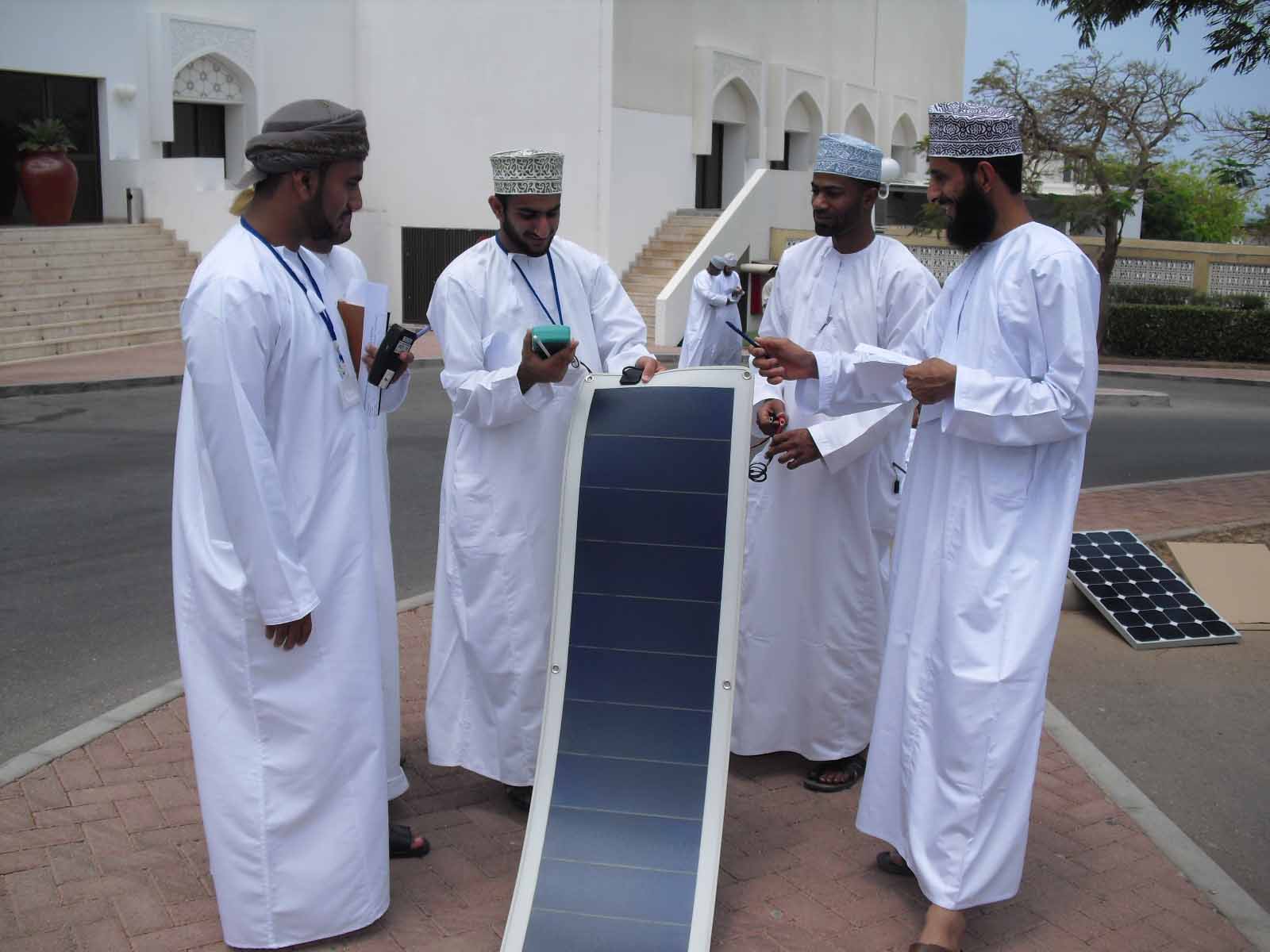
Service Catalogue
Find detailed information about the programme that best aligns with your needs and preferences.
Are you interested in a Customer-specific programmes?
Kindly fill out this questionnaire and attach it to the form on the right:
© 2024 | Renewables Academy (RENAC) AG
